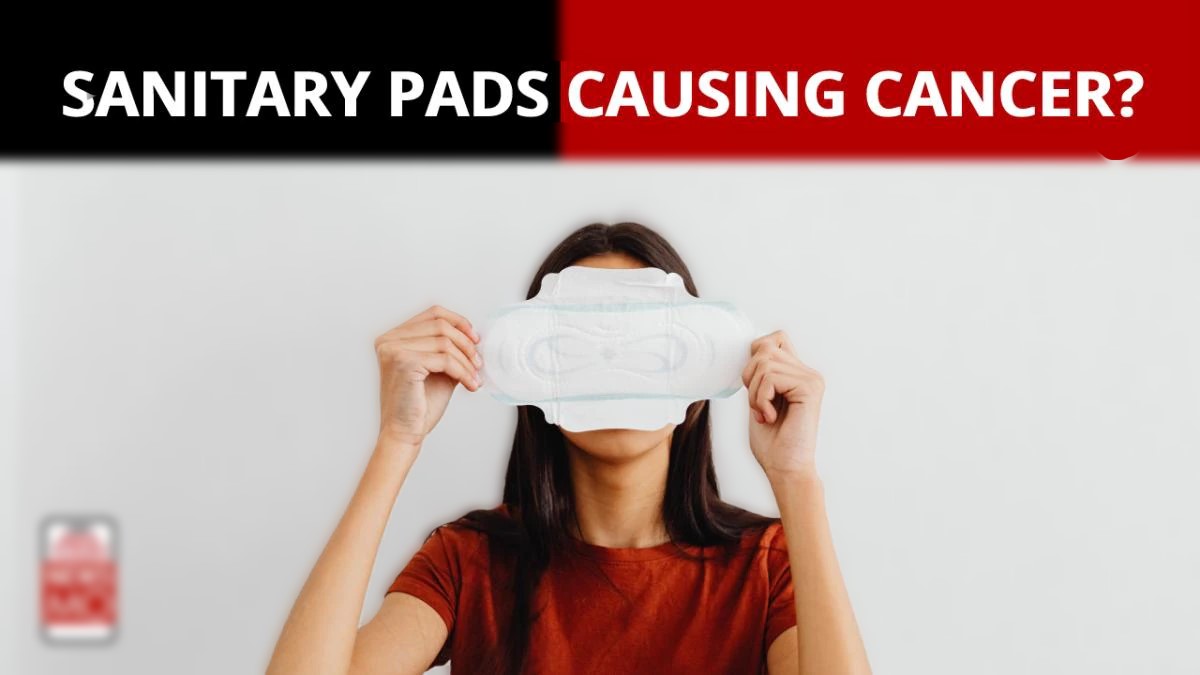Sanitary pads, a staple of menstrual hygiene, are often shrouded in myths and misinformation, especially concerning their potential link to cancer. Here we find out the facts surrounding this sensitive topic, separating truth from fiction. We’ll explore the research investigating the connection between pads and cancer, analyze the potential risks associated with certain pad components, and offer guidance on making informed choices for safe and healthy menstrual hygiene.
Contents
Do Pads Cause Cancer?

The question of whether pads cause cancer is a complex one that has been the subject of much discussion and misconception. While the internet is filled with alarming claims, it’s important to rely on reliable scientific evidence to separate fact from fiction.
Current Research:
Several studies have investigated the potential link between pads and cancer, specifically cervical cancer. However, no conclusive evidence suggests a direct causal relationship. While certain pad components like dioxins and volatile organic compounds (VOCs) have been associated with cancer in high concentrations, research indicates that the levels present in commercially available pads are significantly below those considered harmful.
Potential Risks:
Despite the lack of conclusive evidence, some experts raise concerns about certain materials used in pads, such as:
- Fragrances and dyes: These additives can irritate the delicate skin around the vulva, potentially increasing susceptibility to infections.
- Superabsorbent polymers: These materials, while effective in absorbing menstrual flow, might disrupt the natural vaginal environment and potentially contribute to infections.
Debunking the Myth: Do Pads Cause Cancer?
1. The link between pads and cancer
One of the prevalent myths about sanitary pads is that they can cause cancer, especially cervical cancer. However, it is essential to debunk this myth and provide accurate information. The truth is that there is no definitive scientific evidence linking the use of pads to the development of cancer.
2. Studies and research
Numerous studies have been conducted to investigate the potential risks associated with sanitary pads. These studies have yielded conflicting results, making it challenging to draw a definite conclusion. While some studies have suggested a potential association between certain chemicals present in pads and health concerns, including cancer, others have found no significant evidence to support this claim.
3. Expert opinions
Leading experts in the field have weighed in on the topic and provided valuable insights. According to Dr. Amit, a program coordinator at Toxics Link, the presence of harmful chemicals in sanitary products is indeed alarming. However, it is crucial to consider the cumulative exposure and the practicality of alternative solutions like menstrual cups rather than focus solely on pads as the sole contributor to health risks.
How to Maintain Menstrual Health?

Menstrual health is an essential part of overall well-being, encompassing physical, emotional, and social aspects. By practicing good habits and understanding your body’s natural rhythm, you can navigate your period with confidence and comfort. Here’s a comprehensive guide to maintaining optimal menstrual health:
1. Physical Practices:
- Hygiene: Maintaining proper hygiene during your period is crucial to prevent infections and ensure comfort. Wash the genital area regularly with mild, unscented soap and warm water. Change pads or tampons frequently, especially during heavy flow days.
- Healthy Diet: Eating a balanced diet rich in fruits, vegetables, whole grains, and lean protein provides your body with essential nutrients needed for hormonal balance and overall health. Adequate hydration is also crucial for regulating bodily functions and reducing cramps.
- Exercise: Regular physical activity can help alleviate menstrual cramps, improve mood, and manage stress. Choose activities you enjoy, such as walking, swimming, yoga, or dancing.
- Rest: Prioritizing sleep and taking rest days during your period helps your body recover and manage fatigue. Aim for 7-8 hours of sleep per night and incorporate relaxation techniques like meditation or deep breathing into your routine.
- Menstrual Products: Choose safe and comfortable menstrual products that suit your flow and lifestyle. Opt for natural materials like cotton for pads and tampons and consider exploring reusable options like menstrual cups or period underwear for a more sustainable and eco-friendly approach.
2. Emotional & Mental Wellbeing:
- Track your cycle: Understanding your menstrual cycle length and identifying premenstrual symptoms can help you prepare for mood swings, fatigue, or cramps. Numerous apps and tracking methods can help you monitor your cycle and gain valuable insights.
- Manage stress: Stress can exacerbate menstrual symptoms and negatively impact your overall health. Practice stress-management techniques like meditation, yoga, deep breathing, or spending time in nature to promote relaxation and emotional well-being.
- Connect with others: Talking to friends, family, or online support groups about your experiences can provide comfort, understanding, and helpful advice. Sharing your experiences can be empowering and normalize conversations about menstruation.
FAQs
Are there cancer risks associated with using pads?
Delve into the research to understand if there’s any credible evidence linking the use of pads to cancer.
Do certain materials in pads pose cancer risks?
Explore the composition of pads and investigate if specific materials may have potential associations with cancer risks.
How can one minimize potential health concerns while using pads?
Discover tips and practices to ensure safe and healthy pad use, addressing any potential concerns related to cancer or other health issues.
I am a medical student with experience and interest in Women’s health and well-being.